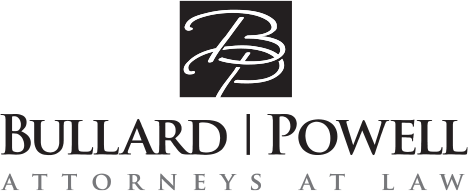On November 4, 2014, California voters passed Proposition 47, which reduces specified felonies to misdemeanors, creates a new offense for shoplifting and allows re-sentencing of certain convicted felons. Proposition 47 is retroactive in application, meaning that any offenses that occurred prior to the November 4, 2014 passage date are still entitled to such relief. Further, any persons currently incarcerated and serving sentences due to plea bargain of an enumerated offense are eligible for relief pursuant to Proposition 47. Effectively, Proposition 47 will allow a person the ability to ask the court to re-sentence or reduce a felony conviction or charge pursuant to provisions of Penal Code §1170.18.
While felony convictions are characterized by possible prison time and up to a $10,000 fine, if convicted, misdemeanors can only be punished with up to a 90 days, 180 days, or 1 year in the county jail, depending on the offense, and up to $1,000 fine.
The following offenses are eligible for reduction from a felony to a misdemeanor pursuant to Proposition 47:
1. Penal Code §459.5 – Shoplifting –
Entering a commercial establishment with the intent to commit theft of property while that establishment is open during regular business hours, where the value of the property taken does not exceed $950, is punishable as a misdemeanor.
2. Penal Code §473 – Forgery of Checks or other Legal Documents Where the Value of the Theft is Less than $950 –
Any person who is guilty of forgery relating to a check, bond, bank bill, note, cashier’s check, traveler’s check or money order where the value does not exceed $950, shall be punished as a misdemeanor.
3. Penal Code §476a – Writing and Tendering a Check with Knowledge of Non-Sufficient Funds (NSF) –
Any person who, for himself or herself, as the agent or representative of another, or as an officer of a corporation, willfully, with intent to defraud, makes or draws or utters or delivers a check, draft or order upon a bank, person, a firm, or a corporation, for the payment of money, not exceeding $950, knowing at the time they do not have sufficient funds, is punishable as a misdemeanor.
Exception: A person is not eligible for misdemeanor relief, if they have suffered three (3) or more previous convictions for petty theft type of crime.
4. Penal Code §490.2 – Grand Theft Where the Value of the Item(s) Taken are Less than $950.00 –
Obtaining any property by theft where the value of the money, labor, real or personal property taken does not exceed $950.
5. Penal Code §496 – Receiving or Concealing Stolen Property Less than $950.00 –
Every person who buys or receives any property that has been stolen or that has been obtained in any manner constituting theft or extortion, knowing the property to be so stolen or obtained, or who conceals, seals, withholds, or aids in concealing, selling or withholding any property from the owner, if the value of the property does not exceed $950, shall be punishable as a misdemeanor.
6. Penal Code §666 – Petty Theft with a Prior –
Prior to the passage of Proposition 47, after three (3) convictions for petty theft the fourth conviction would be treated as a felony. Proposition 47 sets forth that regardless of the number of prior petty theft convictions, the offense will always be treated as a misdemeanor. There are exceptions to this, if the person committed elder abuse theft or certain other non-petty theft priors.
7. Health and Safety Code §11350 – Possession of Heroin, Cocaine & Other Controlled Substances –
Every person who possesses any controlled substance, such as heroin, cocaine or other controlled substance and which is a narcotic drug, unless upon the written prescription of a physician, dentist, podiatrist or veterinarian licensed to practice in this state, shall be punished as a misdemeanor.
8. Health & Safety Code §11357 – Possession of Concentrated Cannabis –
Except as authorized by law, every person who possesses any concentrated cannabis (i.e., hashish) shall be punished as a misdemeanor. However, every person who possesses not more than 28.5 grams of marijuana , other than concentrated cannabis, is guilty of an infraction. Every person who possesses more than 28.5 grams of marijuana, other than concentrated cannabis, is guilty of a misdemeanor.
9. Health & Safety Code §11377 – Possession of Methamphetamine, Ecstacy, GHB and Other Controlled Substances –
Every person who possesses any controlled substance, such as methamphetamine, ecstacy, GHB or other controlled substance and which is a narcotic drug, unless upon the written prescription of a physician, dentist, podiatrist or veterinarian licensed to practice in this state, shall be punished as a misdemeanor.
Instances When You May not be Eligible for Relief Pursuant to Proposition 47
An applicant moving the Court for reduction of a felony to a misdemeanor pursuant to Proposition 47, must establish to a judge that he or she does not pose an “unreasonable risk” of committing one of the offenses listed in Penal Code §667(e)(2)(c)(iv). Offenses under this section include serious and violent crimes, such as murder, solicitation to commit murder, homicide, possession of a weapon of mass destruction, or any other serious or violent felony punishable by death or life in prison are not eligible for reduction. Further, any person who has been convicted of any offense specified in Penal Code §667(e)(2)(c)(iv) is not eligible for reduction pursuant to Proposition 47. In addition, anyone who is a registered sex offender under Penal Code §290 is ineligible for reduction pursuant to Proposition 47.
It is important to note that an applicant only has three (3) years from November 4, 2014 to seek relief pursuant to Proposition 47.
Even if a felony is reduced to a misdemeanor under Penal Code § 1170.18, the individual’s right to possess a firearm will not be restored. The state and federal lifetime ban will still apply.
Examples of Relief Pursuant to Proposition 47
Anyone who has been convicted of the following crimes may file a Proposition 47 petition, so long as they meet the other eligibility criteria:
Code Section
- Penal Code §459
- Penal Code §§§ 470, 470a, 470b
- Poss. of Forged CDL or ID Card
- Penal Code §PC 470(a), (b), (c), (d)
- Penal Code §§471, 471.5
- Penal Code §472
- Penal Code §475
- Penal Code §476, 476a
- Penal Code §§§§484e, 484f, 484g, 484h
- Penal Code §484i(b)
- Penal Code §484.1
- Penal Code §§484/487, 484/487(a)
- Penal Code §487(b),(b)(1)
- Penal Code §487 (b)(1)(A)
- Penal Code §487(b)(1)(B)
- Penal Code §487(b)(1)(B)(2)
- Penal Code §487(c), (d)
- Penal Code §487d, 487i
- Penal Code §496, 496(a)
- Penal Code §666
- Health & Safety Code §11350
- Health & Safety Code §11357
- Health & Safety Code §11377
Contact us today at (909) 771-2304, to see if we can assist you with your case.


